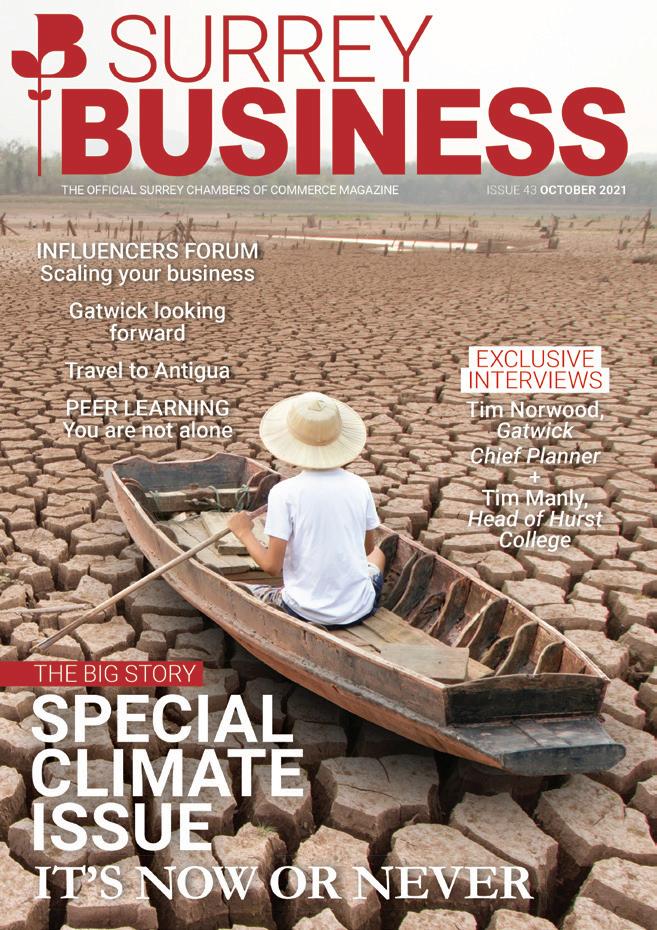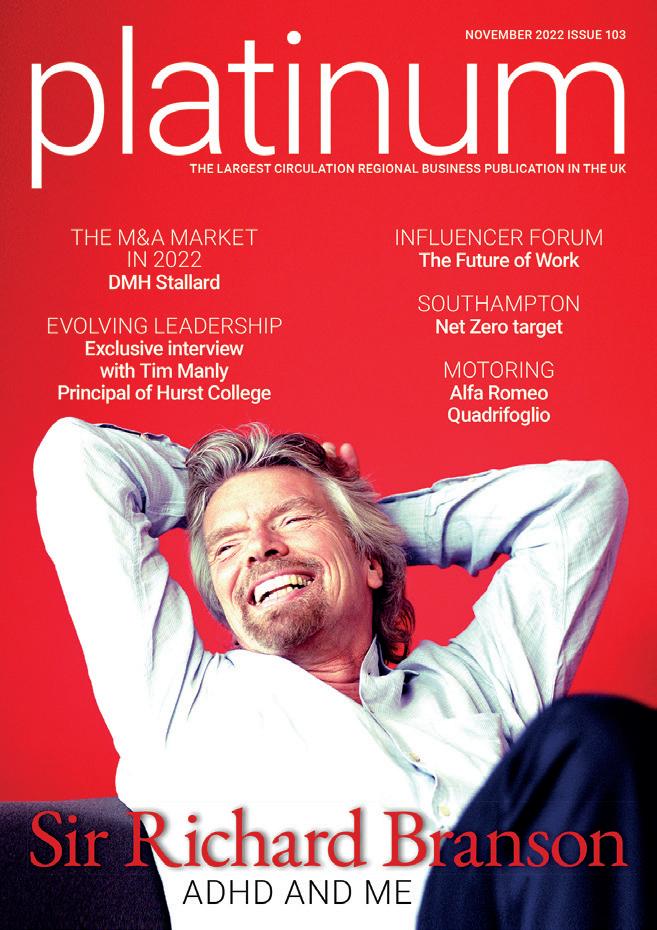HELP TO GROW PROGRAMME Returns to Crawley Reframing the WFH debate IMPOSTOR SYNDROME
The rise of self-doubt
GIRL TORQUE Audi e-tron GT
Ethical travel
DYNAMIC AWARDS 2024 Finalists revealed

BIG STORY

HELP TO GROW PROGRAMME Returns to Crawley Reframing the WFH debate IMPOSTOR SYNDROME
The rise of self-doubt
GIRL TORQUE Audi e-tron GT
Ethical travel
DYNAMIC AWARDS 2024 Finalists revealed

BIG STORY



News
8 Upfront: The top international news stories involving women in business 24 In The Right Direction: Good news stories from around the world
Spotlight
26 Highlighting two professional businesswomen whose work deserves greater attention than it currently receives
30 Tess de Klerk asks whether women should be taking supplements with their everyday diet
32 Reviews of books by Anna Eliatamby and Grazia Lomonte –and others – on mental wellbeing within business leadership
Art Scene
34 Kellie Miller discusses the ‘beautiful imperfections’ of Margaret Curtis’ work
Travel
36 Ethical travel – how best to preserve the cities, landscapes and environments of the places you visit
38 In the latest in this new series, Maarten Hoffmann samples the delights of The Ginger Fox, near Hassocks
42 A brief snapshot of art and culture cross Sussex and Surrey


















2 The Dynamic Awards 2024 Dynamic announces the 2024 finalists. The prestigious business awards evening for women is at the end of the month. Have you bought your tickets?
❛ ❛ If you do things well, do them better. Be daring, be first, be different, be just...
Dame Anita Roddick
22 Working from home Venture capitalist Nicola Foulston seeks to reframe the WFH debate
40 Girl Torque
MDHUB Managing Director, Fiona Shafer, roadtests the Audi e-tron GT quattro –the latest EV from the German giant


PUBLISHER: Maarten Hoffmann maarten@platinummediagroup.co.uk
EDITOR: Tess de Klerk tess@platinummediagroup.co.uk
MOTORING EDITOR: Fiona Shafer fionas@platinummediagroup.co.uk
COMMERCIAL DIRECTOR: Lesley Alcock lesley@platinummediagroup.co.uk
EVENTS DIRECTOR: Fiona Graves fiona@platinummediagroup.co.uk
EVENTS MANAGER: Žaneta Bealing zaneta@platinummediagroup.co.uk
HEAD OF DESIGN: Michelle Shakesby design@platinummediagroup.co.uk
SUB EDITOR: Alan Wares alan@platinummediagroup.co.uk



The key to a successful business is the right advice provided at the right time.
These are just some of the business needs we can help with:
• Restructuring and transformation
• Raising finance
• Buying a business
• Valuations
• Tax efficient solutions
To find out how we can help you and your business, contact Dipesh Galaiya from our business advisory team.
For more than accountancy, business and wealth advice.
Call: +44 (0)33 0124 1399
Email: enquiries@krestonreeves.com
Visit: www.krestonreeves.com


A warm welcome to April’s Dynamic Magazine.
In this month’s Big Story we bring you Natasha Kaplinsky, a consummate professional who has not only had a stellar career thus far but who also makes a huge impact for the causes that she so passionately supports.
Speaking of stellar careers, we turn our Spotlight to Dee Mathieson who has achieved much, and improved the lives and outcomes for cancer patients along the way. We also talk to Victoria Regan, who has recently joined Loch Associates, about her impressive career.
After much feedback when we touched on impostor syndrome in the past, we delve deeper this month, in the knowledge that some readers may recognise this insidious condition, and hopefully feel empowered to tackle it head-on.
In another feature, Nicola Foulston, with many years of business experience, writes of the need to reframe the debate around working from home, making the point that flexibility is key, but shouldn’t be synonymous with a blanket working-from-home policy.
You will, of course, find even more in our regular sections such as Wellbeing, asking if there is a need for nutritional supplements throughout various life stages, through to Fiona Shafer reviewing the Audi e-tron GT for us.
We hope that you enjoy this month’s Dynamic.
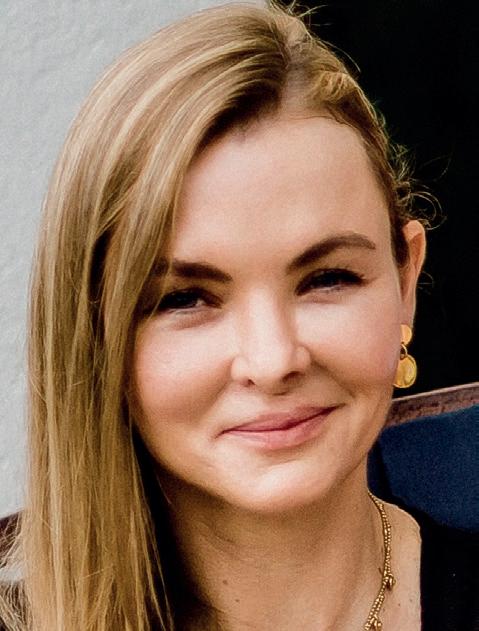 Editor, Dynamic Magazine tess@platinummediagroup.co.uk
Editor, Dynamic Magazine tess@platinummediagroup.co.uk

“Women cannot realise their potential in business, in politics, in life, if they do not have control over their own bodies.”
Archie Young, UK Ambassador to the United Nations General Assembly, made these comments at the 68th Session of the Commission on the Status of Women. He continued, “It is appalling that every day 800 women die from preventable causes relating to pregnancy and childbirth; 7,000 newborn babies die; and another 5,000 are stillborn. “An estimated 218 million women in low- and middle-income countries want to avoid or delay pregnancy but are not able to access modern contraception. Women cannot realise their potential in business, in politics, in life, if they do not have control over their own bodies.” He finished by appealing to the UN to allow women and girls to unleash their latent potential.
The prestigious Michelin Guide added 52 new starred restaurants in France at a ceremony in Tours on March 19th. While many chefs were awarded, women were notably absent. Only six women were among the newly starred chefs each receiving one star, and only one woman was awarded on her own – Eugénie Béziat, head chef at the Ritz Paris’ flagship restaurant, L’Espadon. Three women earned their stars as part of male/female duos, while the female-chef duo of Manon Fleury and Laurène Barjhoux earned a star for their restaurant Datil in Paris. The overwhelmingly masculine cohort was not lost on the Michelin Guide’s International Director Gwendal Poullennec, who said ahead of the ceremony: “Where are the women? Too few women are leading kitchens, despite the fact that more and more of them are working in kitchens. It’s a reality we deplore.”

If the world were ruled by women then there would be no war… just a couple of nations not talking with each other Anon
Women born in the 1950s hit by the state pension age change are owed compensation, a report says. It suggests women should receive a payout of between £1,000 and £2,950, although campaigning groups had asked for £10,000 in compensation.
The Parliamentary & Health Service Ombudsman has been looking at potential injustices resulting from the decision – and the way it was carried out – to raise women’s retirement age to bring it into line with men’s. The government said it would consider the report and respond. The ombudsman has recommended compensation, but the Department for Work and Pensions does not agree. “What the DWP has told us during this investigation leads us to strongly doubt it will provide a remedy,” the report says, adding, “it has clearly indicated it will refuse to comply” on its payout proposal, which the Department said was unacceptable.
Two-fifths of all businesses in the South East of England now have a female director, new research reveals. Creditsafe’s Women in Business report shows that 40% of the 677,000 firms in the region have female representation at the directorial level, an increase of 7% in the UK since 2019. Despite these figures, the data suggests a wide gap is still present in terms of gender equality in business leadership, as highlighted many times in Dynamic.
Drew Fahiya, Creditsafe’s Data Director, said: “This shows that women are making steady progress in the boardroom. Though it’s not possible to prove that women are better at running businesses, there’s evidence that companies with female board members experience advantages such as heightened profitability and reduced failure rates”.

Seize the moment. Remember all those women on the ‘Titanic’ who waved off the dessert cart
Erma Bombeck

A peacock that rests on his tail feathers is just another turkey
Dolly Parton
The global gender gap for women in the workplace is far wider than previously thought, a new World Bank Group report shows. When legal differences involving violence and childcare are taken into account, women enjoy 64% protection from the law compared to the 77% protection for the rights of men. No country provides equal opportunity for women — not even the wealthiest economies.
The latest ‘Women, Business, and the Law’ report offers a comprehensive picture of the obstacles that women face in entering the workforce and contributing to greater prosperity. The gender gap is wider in practice. For example, 98 economies (out of 190) have enacted legislation mandating equal pay for women for work of equal value. Yet only 35 economies have adopted paytransparency measures or enforcement mechanisms to address the pay gap.
Read the full report here.


Everywoman has announced the winners of its 2024 Everywoman in Technology Awards, sponsored by Bupa. Beginning in 2011, each year Everywoman has announced a number of women deemed role models in their job and sector to attract other women into the technology roles.
This year, 16 winners were chosen from a list of almost 90 finalists, each at different levels from students and apprentices, to women in executive-level roles. With a focus this year on the mental and physical health of women in tech, Everywoman and its Tech Awards partner Bupa found almost 40% of women in the technology sector claimed impostor syndrome, with a lack of female role models being some of their biggest barriers in pushing onwards and upwards with their careers. Read about the winners here.
After a successful cohort last year, Help to Grow from the University of Brighton is coming back to Crawley in November.
Women business leaders or senior managers can take one of the limited Dynamic Magazine-sponsored places for women on this Crawley cohort, or the September cohort in Brighton. This mini MBA-style programme from the University of Brighton is taught over 12 weeks, face to face and online, and includes your own business mentor.
Crawley has a broad range of businesses and Help to Grow attendees came from businesses as diverse as solicitors to a golf club and a community cafe to a marketing agency.

This time last year, I was a primary school teacher and so I’m relatively new to the world of business. Having done the Help to Grow course, I am now so much more confident in the transferable skills that I have and the ways in which I can use and develop these, alongside others, for the benefit of the business
Laura Holman, Contractus LtdOver the last 13 weeks, I have had the pleasure of meeting and working with some inspiring, insightful, and just simply wonderful people.
The Help to Grow management course has taken me through all the key elements needed to run a successful business Stacey Pretty, Locate East Sussex

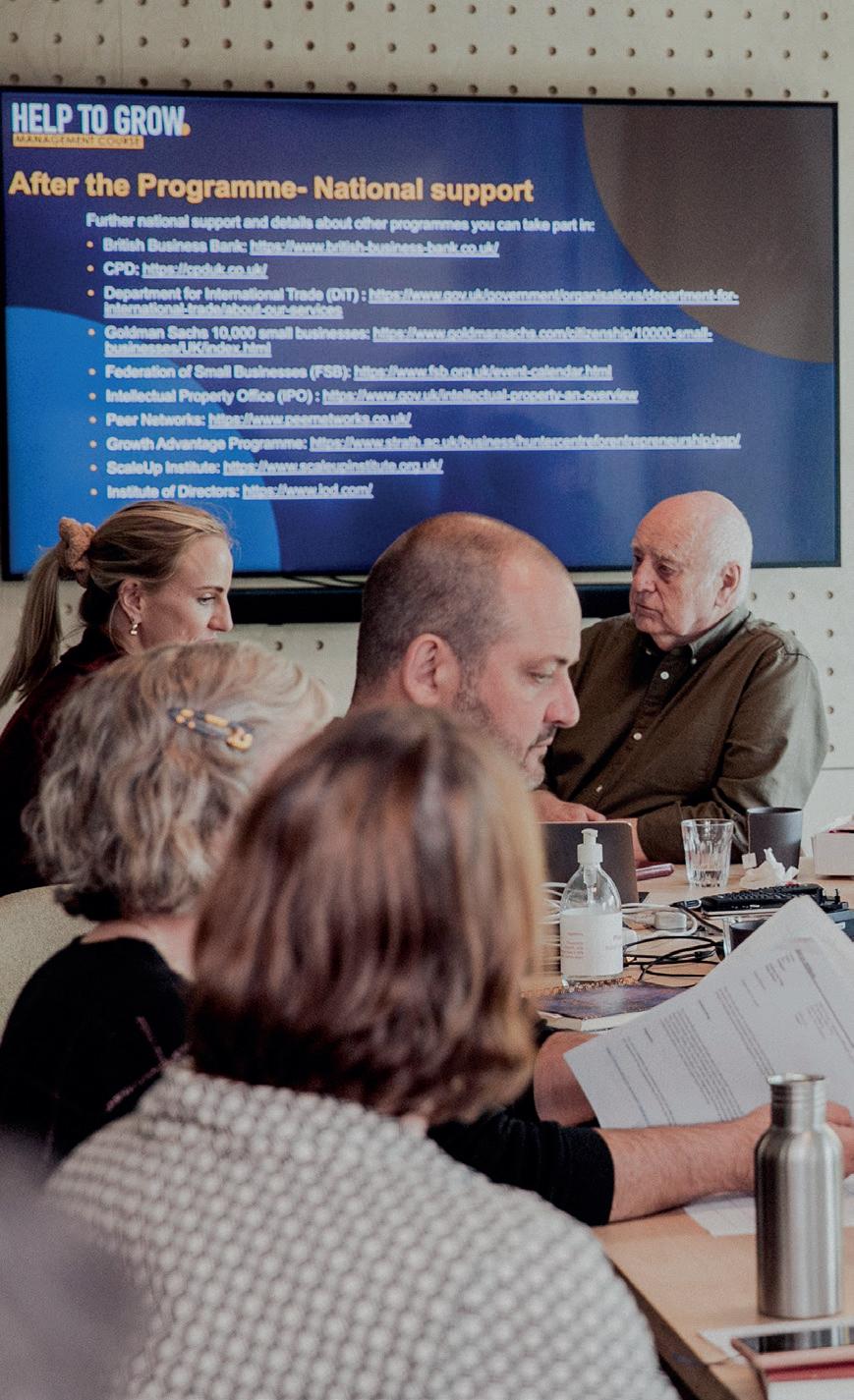

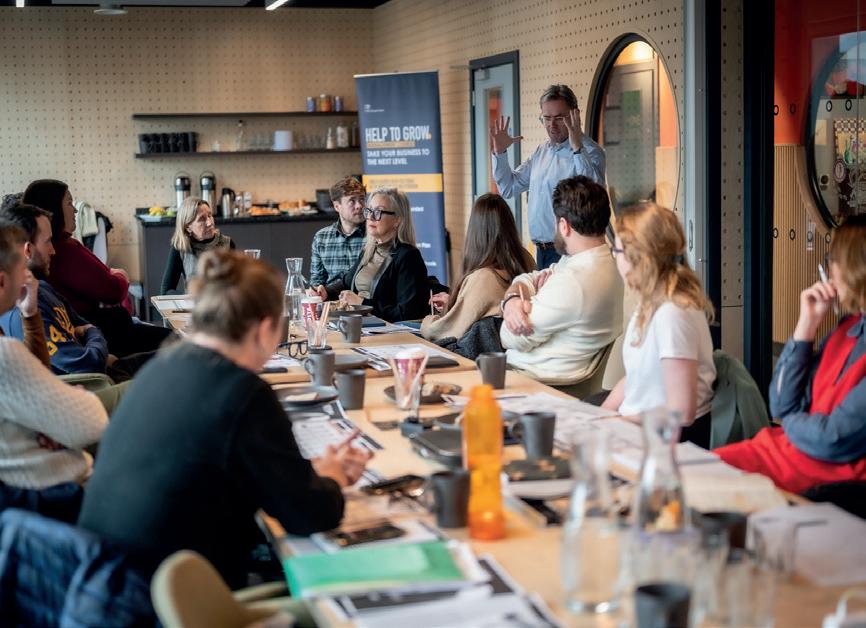

to Grow has been excellent. I gained a solid overview of what it takes to make and lead a business. It’s staggering how much I have learnt and how we can use this to improve the business
Kerry Shoesmith, Anderida Care
l Mini MBA style content
l In person and online sessions over 12 weeks
l Open to businesses with 5+ employees
l Your own one-to-one business mentor
l Time away from work to invest in your business
l 90% Government funded
l Networking with other local businesses
l Taught by experts at the University of Brighton
l You must be a leader or senior manager of an SME which employs between 5 and 249 people to join Help to Grow.
l The next 12-week programme starts in September in Brighton and November in Crawley so sign up to secure your sponsored, no cost place now.
l Make sure you quote DYNAMIC24 under ‘Other’ when the form asks where you heard about Help to Grow.
For more information visit www.brighton.ac.uk/helptogrow or email helptogrow@brighton.ac.uk to arrange a chat with a course leader to find out if the course is right for you.
For more information visit www.brighton.ac.uk/helptogrow or scan here
93% of SME leaders surveyed say they were likely to recommend HELP TO GROW to another business leader
Ipsos survey of 873 attendees July-Sep 2023



It’s always satisfying when you see ‘one of your own’ make it to the top of their chosen profession. Since her first appearance as a newsreader on our screens almost a quarter of a century ago, Brighton-born Natasha Kaplinsky has been the personification of professionalism, trust and tenacity in all of her endeavours.
This is especially brought into focus when we are going through a period when trust in our print and broadcast news media is seriously on the wane, and splinter news outlets have been allowed to have free rein to set their own agenda.
Dynamic takes a look at the career of a journalist with her own fascinating story to tell…
Natasha Margaret Kaplinsky OBE was born September 9th 1972 in Brighton. She is the elder of two children born to Raphael and Catherine Kaplinsky; her brother Ben being born in 1975.
In 1968, her father, Raphael became, for nearly 25 years, a political refugee, fleeing from South Africa to the UK for openly opposing apartheid, and more specifically, protesting a the University of Cape Town’s refusal to allow Archie Mafeje a senior lecturer position due to his ethnicity.
He had his South African passport returned to him after the release of Nelson Mandela, and took part in the country’s first post-apartheid General Election. He had previously refused to vote, given the limited options the main political parties offered during this period.
The family moved to Kenya for a short time, but returned to Sussex while Natasha was still young, and from here she lived and grew up in Barcombe, near Lewes. She attended Ringmer Community College, and later Varndean Sixth Form College in Brighton.
She graduated from Hertford College, Oxford with a degree in English in 1995. While she was at University, she worked in the press offices of Labour leaders Neil Kinnock and John Smith.


While she was at University, she worked in the press offices of Labour leaders
Neil Kinnock and John Smith
Natasha’s first foray into television presenting was alongside fellow debutant Sasha Baron-Cohen on Granada Talk TV’s youth chat show, F2F. The show ran from October 1996 to August 1997. A few clips still exist on YouTube today, highlighting the reason it was a short-lived programme.
She then moved to presenting early morning news bulletins at Meridian. Within six months, she was copresenting their evening news programme Meridian Tonight. In 1999, Kaplinsky moved to ITV’s London News Network where she hosted London Today and London Tonight as well as a political programme called Seven Days.
In November 2000, Natasha joined Sky News, where she initially co-presented breakfast news programme Sunrise; she later moved to early evening bulletin Live at Five, which she presented alongside Jeremy Thompson.
All of this was good grounding for her major leap in television news. In November 2002, Natasha joined the BBC to present BBC Breakfast from Monday to Thursday with Dermot Murnaghan, before moving on the host the BBC News at Six.
In 2006, she became only the third (and youngest) woman to present the BBC’s Ten O’Clock News, leaving there in 2008 for a two-year stint presenting Five News.
In 2004, Natasha participated in the first series of Strictly Come Dancing and went on to win the competition with partner Brendan Cole. She subsequently co-presented the first half of the second series with Sir Bruce Forsyth, filling in for Tess Daly, who went on maternity leave. Natasha returned in 2012, taking part in the Christmas Special, and again in 2018 as part of the BAFTA tribute to Sir Bruce Forsyth.

In August 2005, Natasha married Justin Bower. Three years later, she gave birth to their first child, Arlo and, in 2010, daughter Kika came along. Speaking live on ITV’s This Morning in October 2020, Natasha revealed she had suffered multiple miscarriages, and had chosen to participate in Channel 5’s discussion, Miscarriage: Our Story broadcast the same month.
In 2004, Natasha participated in the first series of Strictly Come Dancing and went on to win the competition with partner Brendan Cole


Natasha’s philanthropic and charitable CV is as impressive as it is long and varied. She has been an ambassador for the UK charity Save the Children for nearly two decades. and is an active ambassador and fundraiser, travelling extensively for them around the world.
She is a patron of the Sussex-based Bevern Trust, a charity that helps people with profound disabilities live active and fulfilling lives, in an environment where they can feel safe, are loved and are offered compassionate care.
She is also an ambassador for Wellbeing of Women; a Patron for the National Maternity Support Foundation and The Willow Foundation, the latter founded by former Arsenal goalkeeper and TV presenter, Bob Wilson.
In October 2018, Natasha joined Michael Sheen in becoming vice presidents (an ambassadorial role) of the Royal Society for Public Health (RSPH).
In July 2019, Natasha took on the role of President of Barnardo’s – a role she still holds, commenting, “There are so many challenges for children these days. It must be frightening growing up now. They have so many concerns, environmental changes, the internet, difficulties breaking into jobs, and believing they’ll never be affording a house. It’s even harder for the most vulnerable children Barnardo’s supports – like children growing up in the care system.”
Natasha was appointed to the Prime Minister’s Holocaust Commission in 2014. Her grandparents had migrated from Slonim, then in Poland, now Belarus in 1929, though she discovered the fate of her own extended family under the Nazis, during filming for the TV series ‘Who Do You Think You Are?’ in 2007.
“The horrors of the Holocaust only become real when you hear an individual story, as it did for me when filming in what is now Belarus. The suffering that resulted from such hatred and prejudice must never be forgotten,” she adds. “The National Holocaust Centre and Museum keeps the memory of these events alive every day.”
Natasha volunteered to record 112 testimonies of Holocaust survivors who had never spoken before, while today she continues to serve as a board member for the Holocaust Memorial Foundation.
She was appointed Officer of the Order of the British Empire (OBE) in the 2017 Birthday Honours for services to the Holocaust Commission.













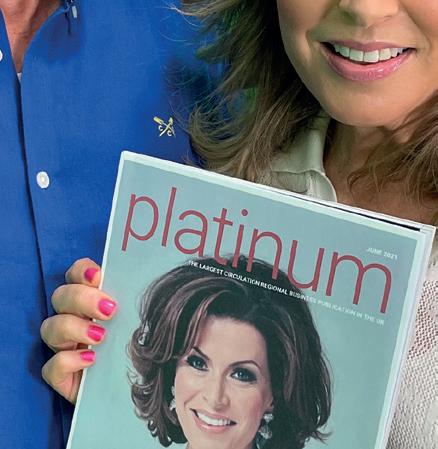








In 2022, she became the President of the British Board of Film Classification (BBFC), after the former president, Patrick Swaffer, stepped down after a 10-year contract.





As President of the BBFC, Natasha is a member of the Board of Directors and chairs the Board of Classification, which meets monthly. The Board of Classification is responsible for overseeing all matters relating to classification, including the most complex and controversial of cases.


The President also chairs the BBFC’s Advisory Council on Children’s Viewing (APCV), which was established in 1999. The APCV advises the BBFC on issues concerning children and young people.






However, for all of her ongoing, astonishing career and life credentials – whether they be her journalistic career, her professionalism in presenting on broadcast media, her off-screen philanthropy and altruism – Platinum believes her true crowning glory is being asked to present at the south east’s premier business awards.




Making her Platinum debut during lockdown, Natasha has presented at the Brighton & Hove Business Awards, the Sussex Business Awards and the Dynamic Business Awards to great acclaim. Natasha is reliable, funny, charming and a consummate professional.
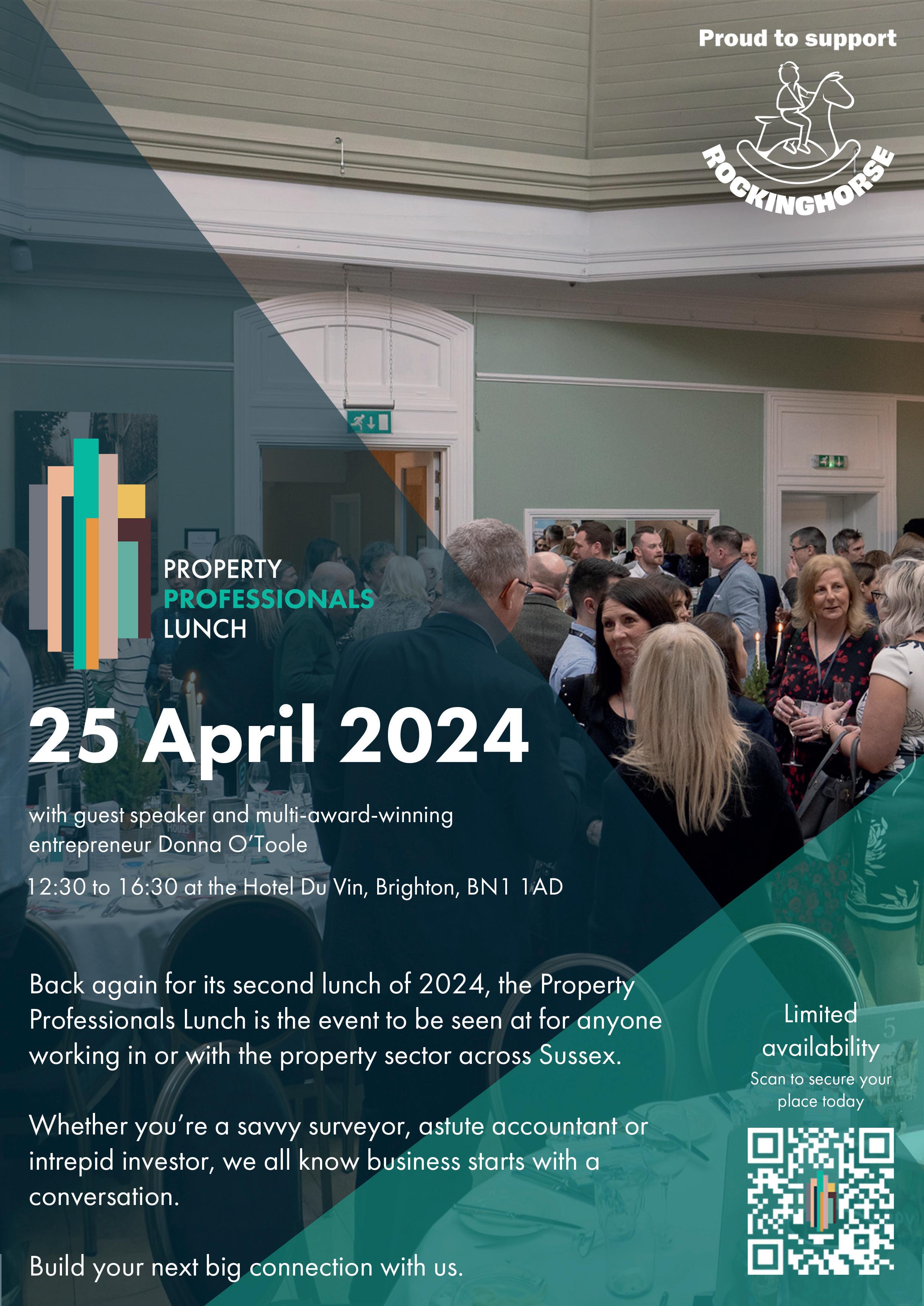
According to YouGov, one in six people will experience impostor syndrome - the persistent feeling that you’re not good enough. It can occur in many situations such as school, social interactions and personal relationships but for this article we will be focussing on the workplace.
Those who struggle with impostor syndrome may doubt their skills, talents, or accomplishments. They may have a persistent internalised fear of being exposed as frauds. Despite external evidence of their competence, people experiencing impostor syndrome do not believe they deserve their success.
They may think that they are deceiving others because they feel as if they are not as intelligent or capable as they outwardly portray themselves to be. Impostor syndrome can stem from and result in strained personal relationships and can hinder people from achieving their full potential in their fields of interest.
These internal feelings of inadequacy may cause situations to be approached with negativity, therefore creating a selffulfi lling prophecy.
In the past, the phenomenon was thought to occur mostly in women. However, more recent research has mostly found that impostor syndrome is spread equally among men and women. Research has shown that women commonly face these feelings in regard to performance. The perception of ability and power is evidenced in out-performing others. For men, it is often driven by the fear of being unsuccessful, or not good enough.
Impostor syndrome is not a diagnosable mental illness but rather an insidious psychological experience


• An inability to realistically assess your competence and skills
• Attributing your success to external factors
• Berating your performance
• Fear that you won’t live up to expectations
• Overachieving
• Sabotaging your own success
• Self-doubt
• Setting very challenging goals and feeling disappointed when you fall short
• Perfectionism
Impostor syndrome is not a diagnosable mental illness but rather an insidious psychological experience that can ultimately lead to depression. Some people may be able to use these feelings as motivation to achieve but that will usually go hand-in-hand with constant anxiety. Someone may work harder than necessary, over-prepare or achieve to prevent others from ‘finding out’ that they’re a fraud, ultimately leading to burnout.


Impostor syndrome can hinder people from achieving their full potential in their fields of interest
• Overemphasis on criticism: Focusing excessively on criticism while downplaying positive feedback can reinforce feelings of inadequacy. The tendency to remember and magnify negative comments can contribute to the belief that one is not truly competent
• Comparisons to others: Constantly measuring one’s achievements against others can create a feeling of inadequacy, as individuals may perceive their accomplishments as inferior when compared to their peers.
• Lack of recognition: When individuals don’t receive sufficient acknowledgment for their efforts and accomplishments, they may doubt their abilities and feel like they are not truly deserving of their successes.
• Social media pressure: The polished versions of success showcased on social media can create a sense of inadequacy, as individuals compare their real lives to the carefully curated images and achievements presented by others, fostering feelings of impostor syndrome.






According to researcher Dr Valerie Young, there are five impostor types:
1 The Perfectionist This type of impostor syndrome involves believing that, unless you were absolutely perfect, you could have done better. You feel like an impostor because your perfectionistic traits make you believe that you’re not as good as others might think you are.
2 The Expert The expert feels like an impostor because they don’t know everything there is to know about a particular subject or topic, or they haven’t mastered every step in a process. Because there is more for them to learn, they don’t feel as if they’ve reached the rank of “expert.”
3 The Natural Genius In this impostor syndrome type, you may feel like a fraud simply because you don’t believe that you are naturally intelligent or competent. If you don’t get something right the first time around or it takes you longer to master a skill, you feel like an imposter.
4 The Soloist It’s also possible to feel like an impostor if you had to ask for help to reach a certain level or status. Since you couldn’t get there on your own, you question your competence or abilities.
5 The Superperson This type of impostor syndrome involves believing that you must be the hardest worker or reach the highest levels of achievement possible and, if you don’t, you are a fraud.
• Accept praise and know your worth: Not shying away from knowing your worth means allowing your work to speak for itself and letting others see it too.
• Stop thinking like an impostor: Learn to recognise selfdefeating thought patterns, and replace them with more positive affi rmations. The only way to stop feeling like an impostor is to stop thinking of yourself as one.
• Don’t seek perfection: Stop believing that if you don’t excel at every facet of your job that you’re a failure at all of it. Facing challenges and losses is a key part of growth, recognise that you don’t have to be good at everything.
• Stop comparing: Constantly comparing yourself to others is futile since we all have strengths and weaknesses. Impostor syndrome may cause you to compare your weaknesses to others’ strengths only.
• Share your feelings: Talk to other people about how you are feeling. Irrational beliefs tend to fester when they are hidden and not talked about.
• Refuse to let it hold you back: No matter how much you feel like you are a fraud or that you don’t belong, don’t let that stop you from pursuing your goals.
• Consider help: If none of the above helps, consider seeing a mental health professional who can help you overcome these feelings.
Feeling like an outsider isn’t necessarily a result of impostor syndrome. In some cases, it can occur due to actual discrimination or exclusion based around systemic bias. With impostor syndrome, the feeling of being an outsider is caused by internal beliefs. With discrimination, the feeling is caused by the actions of others.
Because impostor syndrome eats at you from the inside out, often with no outward signs of struggle, this makes it all the more important to recognise what’s going on and take steps to address these feelings. Otherwise, your feeling of incompetence may prevent you from, say, pursuing a professional goal that might actually be right for you, which could lead to more regret and negative self-talk
Hannah Owens, Therapist

•















 By Nicola Foulston, Chair of Velocity Venture Capital
By Nicola Foulston, Chair of Velocity Venture Capital
In the current discourse surrounding the future of work, there’s a persistent narrative fixated on a return to office-based working. Amidst all this clamour, what often gets lost is the more important conversation about fostering a culture of productive collaboration that truly serves the needs of businesses and their employees.
Flexible working arrangements have been a staple in workplaces for decades. It’s perplexing, then, that in the fervour over remote work, this longstanding flexibility seems to have been overlooked.
On returning to work in 2016, and as a working Mum to two teenagers, I was offered such flexibility within my contracts, working from home alternate weeks throughout the last eight years. I have offered countless such flexible contracts myself to ensure good people could be retained in the businesses I led over the last 30 years. This is particularly true for women balancing the needs of childcare with a career.
cost savings, it’s crucial not to discount how invaluable collaborative working is for personal growth and development. I speak from personal experience as, during the last eight years, I would not have learnt and grown as much without the office-based experiences I had.
Indeed, the office serves as more than just a physical space for work; it’s a hub for innovation, idea-exchange, and team synergy. The spontaneous conversations at the water cooler or the brainstorming sessions in the conference room are not mere relics of a bygone era but essential components of a thriving workplace culture. I learned much more about my teams through F2F interaction that led me to suggest successful lateral career moves that simply would not have arisen had that interaction not occurred.
Flexible working arrangements, when implemented thoughtfully, have the potential to facilitate greater inclusivity
To be clear, the call for flexibility shouldn’t be synonymous with advocating for a blanket working-fromhome policy. It’s about recognising the diverse needs of businesses and individuals alike. While remote work undoubtedly offers perceived benefits of flexibility and

It is hard enough to start a new job, and harder still to start one remotely. Without the ability to directly observe colleagues’ actions or receive immediate assistance, new employees, especially those straight out of university, simply do not get to see how work operates. I truly do feel sorry for the wave of graduates who have been relegated to learning the ways of the working world from their bedrooms, oblivious, through no fault of their own, to many of the protocols that influence professional culture.
Moreover, let’s not underestimate the significance of social interaction outside of work. These casual encounters foster camaraderie, build rapport among colleagues, and ultimately contribute to a more cohesive and motivated workforce. For me, they were essential for my team to know me and who I really was, rather than simply a corporate suit. Being friends with your colleagues not only improves job satisfaction but also workplace efficiency, stripping away any barriers of embarrassment felt by asking the stupid questions that very often need asking.
Let’s not lose sight of the broader societal implications. Flexible working arrangements, when implemented thoughtfully, have the potential to facilitate greater inclusivity, particularly for working mothers and caregivers. It’s time to shift the focus from a binary debate over remote versus office-based work and instead prioritise what truly matters: cultivating a culture of productive collaboration that serves the best interests of businesses and employees alike.
To be clear, the call for flexibility shouldn’t be synonymous with advocating for a blanket working-from-home policy
What’s the greatest lesson a woman should learn? That since day one, she’s already had everything she needs within herself. It’s the world that convinced her she did notRupi Kaur
The UK has seen a significant decline in cancer mortality rates despite a rise in cancer cases. A recent study by Cancer Research UK reveals that since 1993, cancer-related deaths among middle-aged adults have decreased by a third. The study highlights a 37% drop in mortality rates for men and a 33% decrease for women in the UK. Notably, cervical cancer recorded the most substantial decline, with death rates falling by 54.3% due to enhanced screening efforts. The introduction of the HPV vaccination is expected to contribute further to reducing cases. Despite the positive trajectory, the study underscores concerns regarding the failure to meet cancer waiting times targets across all UK nations, coupled with mounting pressure on healthcare professionals. Lead author Jon Shelton urges the UK government to take decisive actions to sustain progress and advance healthcare initiatives swiftly.
Could wooden satellites make space exploration more environmentally friendly? Researchers at Kyoto University, Japan, believe so, and are preparing to launch a satellite made of magnolia wood.
The timber, which astronaut Koichi Wakata tested in space, was shown to withstand extreme temperature fluctuations. The team at the university believes that it could therefore offer an alternative to the metal that most satellites are made from, but which burns up when it re-enters the atmosphere, leaving behind toxic particles. A launch is planned for later this year.

Lucy Moore, a Wikipedia editor based in the UK, has successfully completed a groundbreaking project aimed at publishing Wikipedia biographies for at least one woman from every country. This ambitious endeavour was started to address the glaring gender disparity in the encyclopaedia’s representation. Moore expressed concern over the fact that under 20% of biographies on English Wikipedia feature women, a statistic she believes fails to accurately reflect women’s significant contributions to the world. Through her project, Moore sought to spotlight the remarkable achievements of women from diverse backgrounds globally. Among the 532 women profiled by Moore are notable figures such as Afghan women’s rights activist Laleh Osmany, Chadian poet and artist Salma Khalil Alio, and Belgian painter Emma De Vigne.
We women talk too much, but even then we don’t tell half what we know
Nancy Astor

In 2023, advanced economies experienced an unprecedented decrease in their CO2 emissions, despite concurrent GDP growth, as revealed in a report by the International Energy Agency (IEA). This decline was credited to a combination of factors, including robust deployment of renewables, transition from coal to gas, enhancements in energy efficiency, and a slowdown in industrial production.
The IEA noted that emissions in advanced economies reached a 50-year low, accompanied by a decrease in coal demand to levels not witnessed since the early 1900s. Additionally, 2023 marked the first time that low-emissions sources accounted for at least half of electricity generation in advanced economies. However, global emissions continued to rise by 1.1% in 2023, according to the IEA, although Executive Director Fatih Birol highlighted positive trends amid challenging global events. Despite progress, Birol emphasised the imperative of greater efforts to facilitate clean energy investment in emerging and developing economies.

❛ ❛ Almost everything will work again if you unplug it for a few minutes, including yourself
Anne Lamott
AI has revealed that prostate cancer is not a single disease, potentially heralding a groundbreaking shift in how this condition is diagnosed and managed. A study, funded by Cancer Research UK, has unveiled that prostate cancer, affecting one in eight men, comprises two distinct subtypes. This breakthrough emerged from collaborative efforts led by the University of Oxford and the University of Manchester, using AI techniques on genetic data. The research team anticipates that their discoveries may revolutionise the diagnostic and treatment paradigms for prostate cancer, potentially saving lives. Dr. Naomi Elster, Director of Research at Prostate Cancer Research, expressed optimism, suggesting that this development could initiate a model akin to the successful ‘divide and conquer’ approach witnessed in other diseases such as breast cancer.





The Paris Club, a collection of some of the world’s wealthiest creditor nations, has announced the cancellation of 99% of Somalia’s debt, in a major boost as the country continues its fragile economic recovery from an ongoing three-decade conflict. In a statement released by the Paris Club, which is run by senior officials from the French Treasury, Somalia’s creditors, including the US, UK, Russia, Norway, and Japan, announced the cancellation of $2bn owed to club members as of January 2023.
The Paris Club said part of the debt would be waived on a “voluntary and bilateral basis” between individual countries that Somalia had borrowed from and the rest under the Heavily Indebted Poor Countries Initiative (HIPC), an IMF and World Bank scheme to support poorer countries with unsustainable debt levels. In a post on X, formerly Twitter, Somalia’s finance minister, Bihi Eged, said: “Achieving full debt relief will transform Somalia’s future and allow our government to create fiscal space for basic public services.” Somalia’s information minister, Daud Aweis, said on X that the agreement marked a “big milestone in the country’s journey to financial recovery”.

In our exclusive Spotlight feature, we highlight women who are doing good things in their community. They’re not always seen but we think they should be
Dee is the Senior VP at the groundbreaking Elekta Ltd, a Crawley-based company at the vanguard of cancer treatment technology
I have had a long career in cancer care, starting in the clinic and moving into industry. I have been proud to play a key part in the investment into technological innovations which have changed the standard of care for millions of cancer patients across the world.
I qualified as a Therapy Radiographer in 1981. Therapeutic radiographers are responsible for the planning and delivery of accurate radiotherapy treatments using a wide range of technical equipment. Radiotherapy is used in the treatment of cancer, and it is a really rewarding field to be part of.
I realised during my training and subsequent clinical experience that the technology could be significantly improved to increase the accuracy of radiation targeting. More importantly, we could improve patient comfort. I moved into the Medical Physics team and, together with a colleague, implemented some new ideas.
One example was a vacuum moulding system so we could replace the sticky tape and foam used to position and stabilise patient heads for treatment with a simple plastic mask. Another was a device to improve the accuracy of breast patient setups. Having shown such interest and aptitude, I was encouraged to study for a degree in Physics at London South Bank University.
Within a month of getting my Physics degree I was headhunted by Philips; evidently the mix of domain knowledge and experience I had gained was rather rare. I joined Philips in October 1987 as a Technical Training Specialist, teaching engineers about clinical aspects of radiotherapy and the physics and technology behind the treatment systems –the linear accelerators.
As part of my development, I supported the installation of a linear accelerator at the Bristol Royal Infirmary, where I learned a great deal more about the underlying digital technology Philips had introduced as a world first. It is this technology which we continue to build on today to support the latest treatment techniques and imaging technologies needed for state-of-the-art radiotherapy.
My career in Philips (now Elekta) has been varied, and I have held several different global roles in oncology and neuroscience over the years, including service engineering, product management, marketing, commercial operations, and service operations.
Four weeks’ delay equates to a 10% reduction in the chance of cure. The delays we see in the UK are often longer than this

During this time, I have been privileged to have been directly involved in setting product strategy for many groundbreaking innovations which further improved the accuracy of radiation treatment, and patient and user experience. Several of these innovations have changed the standard of care and improved outcomes for cancer patients across the world, and have positioned Elekta as a leader in cancer treatment technology.
I am so proud to have reached the pinnacle of my career journey as a Senior Vice President, and the first female Managing Director of Elekta Ltd in the UK. Recently, I was bestowed the title of Honorary Fellow of Nescot College; a particularly proud moment for me as an alumnus of the college which was awarded in recognition of my achievements throughout my career.
As for the future, I plan to continue inspiring more people to consider a career in radiation therapy and supporting the political lobbyists to secure more investment in the UK. One in two people will get cancer, and half of those will have radiotherapy as part of their treatment plan – and yet radiotherapy gets a mere 5% of the cancer budget.
I have been privileged to have been directly involved in setting product strategy for many groundbreaking innovations which further improved the accuracy of radiation treatment
As the most cost-effective treatment available, and one that is curative in so many cases where diagnosis and referral have been prompt, it is vital that we ensure everyone in the UK has access to it irrespective of their post code. Currently, the UK sits very low in the league tables for cancer survival rates. This is not acceptable, and we need to make sure there is investment to address the gap to make sure our hospitals have the latest technology, trained care givers and that the current waiting lists for treatment are reduced significantly.
Four weeks’ delay equates to a 10% reduction in the chance of cure. The delays we see in the UK are often longer than this.
I feel very fortunate to have always loved what I do and am so proud to look back over my career and know that I have played my part in giving hope to cancer patients across the world by improving their treatment.
www.elekta.com

Victoria is an experienced employment law solicitor, and a Partner at Loch Law, heading up the firm’s Eastbourne office. Here is her fascinating journey so far…
With a passion for people and a love of the law, I knew from a very young age that my future career would be in the legal profession. I’m not sure if this was a result of the 90s legal inspiration that was Ally McBeal, but as soon as I was able, I found myself work placements during the summer and Christmas breaks at a local Eastbourne law firm. It gave me invaluable experience of legal practice, and further cemented my desire to work in this field.
Immediately after finishing Law School, I was given the incredible opportunity to go on a ‘legal mission’ and work with the Justice and Peace Commission in Nairobi to promote female rights whilst campaigning against female genital mutilation. The lack of rights that girls and women have in third world countries was a huge awakening and created my passion for fighting for female rights within employment law.
In 2002, I was offered a training contract with Mayo & Perkins, and have since spent 20 years specialising in employment law and working with some fantastic firms in London and the South East.
Loch Associates leads by example, and focuses on creating a business that enables us, as employees, to have the skills and expertise to deliver for our clients
In 2014, I led on the case of Hazel & Huggins v Manchester College, successfully representing the claimants at the Supreme Court. This case remains the leading reference in cases involving harmonisation of contract dismissals following Transfer of Undertakings (Protection of Employment) Regulations 2006, and demonstrates how rewarding employment law can be.
In this industry, you can often feel like you’re treading through a minefield, but working with a client to unpick their employment problem, thinking ‘outside of the box’ to find a resolution and then navigating the legal framework to create a valuable solution is a fascinating and exciting process.
Client relationship is something I have always been passionate about; fostering a relationship that not only helps shape and develop their business but also ensures that they are mitigating risk with an approach that is manageable and appropriate for them. I am lucky to have been recognised for the work I have done in this field by being ranked by Chambers & Partners as a ‘Recognised Practitioner’ last year and am ranked as a ‘Leading Individual’ in the Legal500.
Recently, the spotlight has been placed on women’s health and wellbeing in the workplace, with a strong focus on menopause, fertility and menstrual health. This has created some incredibly important conversations from legal and HR perspectives, considering how fit a company is to enable its female workforce to perform, and deliver without barriers or discrimination – and how the entire workforce can assist with this more comfortably by having the requisite information and training.

Client relationship is something I have always been passionate about
I regularly talk at seminars and at webinars around these topics and see it as an area of employment law that can make a powerful impact on the lives of working women and future generations.
Since joining Loch Associates Group at the beginning of the year, I have been incredibly impressed by its commitment to clients, creating multi-disciplinary solutions for businesses and individuals, and fostering long-term partnerships that really deliver value.
The company leads by example, and focuses on creating a business that enables us, as employees, to have the skills and expertise to deliver for our clients whilst navigating our own path through employment.
The future feels very bright at Loch Associates Group. I am excited by the opportunities to help businesses across the South East, not only perform, but excel with our specialist expertise and advice.
www.lochassociates.co.uk

 BY TESS DE KLERK
BY TESS DE KLERK
Supplements – there are so many out there! Unravelling what we may need can become confusing, not to mention time-consuming. We always seem to hear that a balanced diet will protect us from deficiencies, which it will, of course. But if you’re not managing your five-plus-a-day, lots of oily fish, cruciferous veg, healthy protein etc then supplements most definitely have their place.
A study by the Health and Food Supplements Information Service (HSIS) concluded that a third of British women are nutrient deficient, with over half not taking note of their daily intake of essential nutrients. Th is is where dietary supplements can play a pivotal role in bridging the gaps.
Our nutrient needs are not set in stone though, influenced by many factors such as activity levels, health status, sex etc but as a general rule of thumb we can look at life stages. Dr. Carrie Ruxton, co-author of the study and a dietitian at HSIS, emphasises the significance of tailored nutrient intake across different stages of a woman’s life.
From childhood to older age, distinct nutritional requirements dictate optimal health, including support for pregnancy, lactation and menopause. Adopting a personalised approach to nutrient intake, rather than a generic one, is crucial for women’s wellbeing and the health of future generations.
Children need a variety of nutrients which can help aid healthy development, with the most important being vitamins A, C, and D.
“In the early years of schooling, her brain needs support from omega-3s and good hydration with tap water,” Ruxton explains. “Food fussiness and refusal are common in the early years which can impact on a girl’s ability to get all the nutrients she needs. Combining a food-fi rst approach with a paediatric multivitamin is a good way forward but add in a fish oil supplement if she won’t eat oily fish.”
During adolescence, the focus shifts to nutrients like B vitamins, calcium, and iron, crucial for skeletal growth and menstrual health. Watch out for those fad diets, sugar and empty calories which will be particularly tempting during this phase but can easily cause nutrient deficiencies as well as a lack of fibre. Supplementation during the teenage years makes sense and can safeguard against imbalances.





















For women contemplating pregnancy, supplementing with folate, choline, iodine, and other key nutrients is crucial for healthy conception and foetal development. Dr. Ruxton underscores the prevalence of folate deficiency among women and emphasises the importance of adequate vitamin D intake during pregnancy. Additionally, omega-3 supplementation is recommended for optimal foetal brain and eye development.




Adopting a personalised approach to nutrient intake, rather than a generic one, is crucial for women’s wellbeing









































THE 20s: CALCIUM, MAGNESIUM & VITAMIN D
In the 20s, as educational and professional pursuits take precedence, nutritional priorities may take a backseat.
“Life is all about having fun – possibly drinking too much alcohol or relying on takeaways. Young women may feel under pressure to diet, but peak bone mass is achieved during their 20s. So scrimping on bone health nutrients, like vitamin D, calcium and magnesium could lead to later osteoporosis,” Ruxton says. “Given the growing trend for plant-based diets, many women are unaware that avoiding animal-based foods can lead to nutrient shortfalls for vitamin B12, vitamin D, iron, iodine, zinc, and selenium.”
THE 30s AND 40s: OMEGA-3s, VITAMIN B5, POTASSIUM AND POLYPHENOLS
In the 30s and 40s, juggling various responsibilities may lead to stress, fatigue, and unhealthy dietary habits but this period is an essential time to lay more groundwork for healthy ageing. Unfortunately, it’s also a period during which many women may become less active, gain weight and perhaps have those extra few glasses of wine. It is, after all, a time when time and energy is often focused on work, kids, family etc.
Essential nutrients at this stage include polyphenols, which protect the body against oxidative stress, vitamin B5, potassium which is necessary for the normal functioning of all cells, and omega-3s with benefits ranging from brain to heart to skin health.
Whichever life stage you’re looking at, it is best to consult a health care professional before starting with any supplement












As women enter their 50s, hormonal changes associated with menopause necessitate specific nutritional considerations. Gut health is particularly important during this period therefore consider probiotics. B vitamins can help with mood swings while a focus on bone density is important as the ovaries stop producing protective oestrogen – supplement with vitamin D, magnesium and calcium.
60s AND BEYOND: PRE &
In the 60s and beyond, sustaining optimal health becomes imperative as energy requirements decrease and micronutrient needs remain high. Dr. Ruxton recommends multivitamin supplementation to address potential nutrient deficiencies and mitigate cognitive decline. Supporting immune health with vitamins A, C, and D, alongside promoting gut health through probiotics and prebiotics, becomes essential for overall wellbeing in later life stages.
Whichever life stage you’re looking at, it is best to consult a health care professional before starting with any supplement. Blood tests can be helpful too as we are all unique with differing needs.
For more information visit hsis.org

Anna Eliatamby is Director of Healthy Leadership, CIC and co-author, with Grazia Lomonte, of Healing-Self Care for Leaders and their Teams
Leadership, wellbeing, and self-care should go hand in hand. But it is easy to forget to look after ourselves. This then leads to destroying our wellbeing; sometimes, too easily. Here’s how the damage can happen to women leaders’ wellbeing.
Ignoring your own sense of self and identity is a key factor. Denying your own essence of womanhood, diversities, and then creating a persona to succeed can be very detrimental to your personal wellbeing. Especially if this contradicts your core values.
Linked to this is the tendency to ignore the role of emotions in life, and pretend that they don’t matter to you to avoid being stereotyped. Emotions are a part of us and, if suppressed for too long, can be destructive.
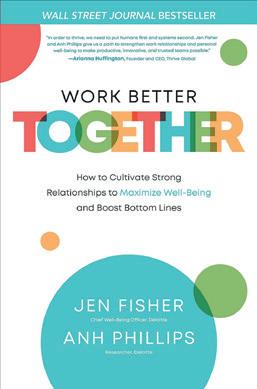
BETTER TOGETHER: HOW TO CULTIVATE STRONG RELATIONSHIPS TO MAXIMISE WELLBEING AND BOOST BOTTOM LINES
By Jen Fisher and Ahn Phillips McGraw Hill (2021)Jen Fisher, Deloitte’s Chief Wellbeing Officer, and Ahn Phillips, a researcher and collaborator with the Deloitte Centre for Integrated Research, co-author this insightful book. Fisher’s expertise in corporate wellbeing and Phillips’ background in research provide a unique blend of practical experience and academic insight. Their combined perspectives offer a comprehensive view of how relationships impact organisational health and productivity. The book is a guide for developing healthy workplace relationships that can withstand the challenges of the modern work environment.
Adopting a negative leadership style that is counter to your sense of self and identity can be very wearing. Having to pretend to be dominant and super-confident as a leader is tiring and not sustainable. All of this is further compounded if you choose to surround yourself with people who reinforce the negative and damaging parts of yourself.
Disregarding self-care will guarantee harm to wellbeing. Using negative coping habits (inactivity, eating too much or too little, for example) is dangerous, especially if low self-esteem and self-respect accompany them. If the leader resorts to destructive coping habits such as addictive behaviours and ignoring psychological issues such as past traumas, she will destroy her wellbeing.
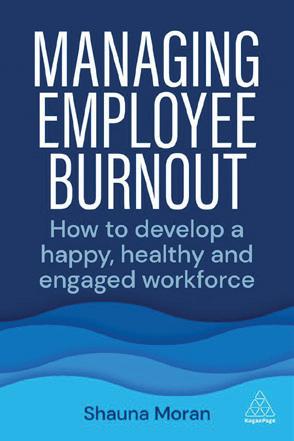
Managing Employee Burnout covers everything from what burnout is, what causes it and what different forms it can take. It also explores the role of the organisation in employee burnout and includes specific guidance on how to manage burnout in remote and hybrid working environments, and why dispersed teams may be more susceptible to burnout. Full of actionable advice and real world examples, this book demonstrates what strategies to put in place to safeguard staff retention and productivity from burnout as well as how to promote awareness and emotional intelligence in the business.

Destructive work habits can occur, especially if you feel you must prove your worth. Working for too many hours or taking on more responsibility just to show that you are capable can lead to a massive psychological impact.
Choosing to use toxic behaviours has a detrimental impact on all concerned. Perhaps because the culture demands it, or you are insecure in your leadership skills. The amount of energy spent in being negative is massive, especially if using these actions is counter to your true self. Only a very few relish the effect of these actions.
All these are unnecessary. Acknowledging your own authenticity and values will safeguard your wellbeing.
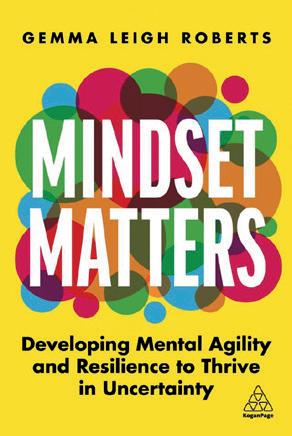
Kogan
Page (2022)In Mindset Matters, chartered psychologist and star LinkedIn Learning instructor, Gemma Leigh Roberts, teaches you why mental agility is the key ingredient to developing resilience – and how to achieve it. From changing perspectives, emotional flexibility and achieving a growth mindset, to cementing your mindset shift in others and your team, you will learn research-backed strategies that will allow you to grow your resilience and use change to your advantage. With energy and speed, you can embrace moments of pivots and ensure you and your business bounce back from whatever the world throws at you next.
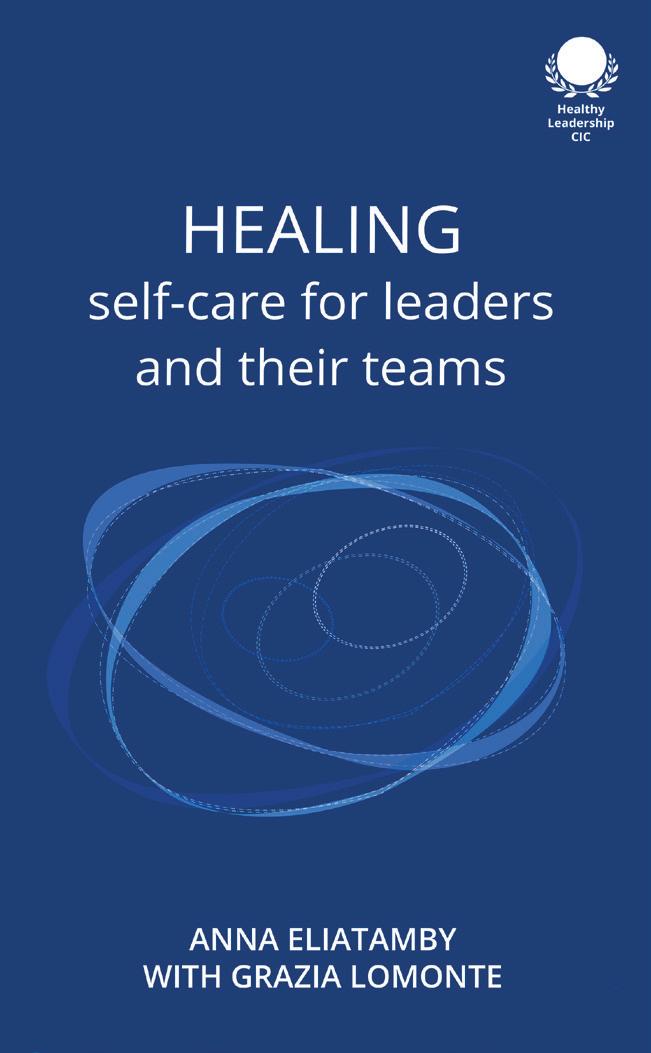
Having to pretend to be dominant and super-confident as a leader is tiring and not sustainable
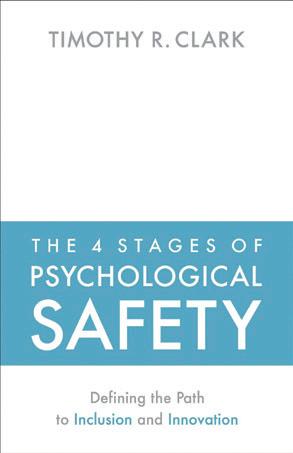
Berrett-Koehler
Publishers (2020)This book is a practical, handson guide that shows how leaders can build psychological safety in their organisations, creating an environment where employees feel included, fully engaged, and encouraged to contribute their best efforts and ideas. Perhaps the leader’s most challenging task is to increase intellectual friction while decreasing social friction. When this doesn’t happen and it becomes emotionally expensive to say what you truly think and feel, that lack of psychological safety triggers the self-censoring instinct, shuts down learning, and blocks collaboration and creativity.
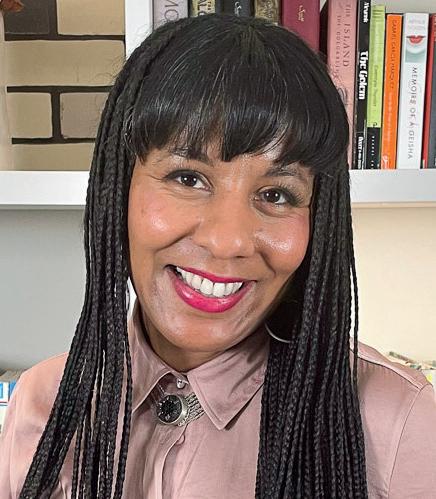 By KELLIE MILLER
By KELLIE MILLER
Margaret Curtis is a gentle, unassuming creator who channels her energy into producing Japanese-inspired ceramic vessels. She uses ancient Celadon and Snow-white Shino glazes and preserves fi ring techniques in oil and gas kilns.
Her approach to traditional Japanese techniques speaks of Wabi-Sabi, an elegant Japanese concept. The dual words promote humble beauty and a detachment from materialism, while Sabi denotes time and hidden beauty. The idea is about acceptance, embracing imperfections, appreciation, and living life simply and with heart.
of effortless achieving resulting in Optimal Functioning. Further research became widespread in the 1980s and 90s, and the theory was applied to schools, the business world, and sports arenas.
Wabi-Sabi adopts an inside-outside approach. The idea is to bring the beauty of nature into the home and workplace
Wabi-Sabi adopts an inside-outside approach. The idea is to bring the beauty of nature into the home and workplace. Margaret embraces this philosophy in her pieces and says: “My work is the antithesis of the massproduced and immaculately mastered and, as such, seeks to avoid perfection.
“Th is is where my interest lies: with the beauty of imperfection, a beauty that can come from ageing, natural decay, surfaces that have become patinated with wear, weathered, or uniquely deformed.”
Her best works are made when she is in a particular state of mind – relaxed and calm, thoughtful but not too forcefully engaged. She attributes this to the Flow Theory.
Artists often used the metaphor of water flow while describing their processes, as in interviews with Mihaly Csikszentmihályi, a Hungarian-American psychologist, in the 1970s.
“It was like floating—I was carried by the flow.”
The origins came from artistic endeavours, where skills, creativity, and levels of enjoyment merge, creating a sense of timelessness and a feeling of out-of-body experiences; a sense
Yunomi CeladonWhen she achieves this state, the work happens almost automatically. She feels less in control and more of an observer of what results from her efforts.
Margaret established her studio in 1979 in Scotland. Her sensitive approach to her art form and several decades of creating has made her work highly acclaimed and collected worldwide. Her works can be viewed at Kellie Miller Arts, Brighton.
Kellie Miller is an artist, curator, critic and gallery owner. www.kelliemillerarts.com

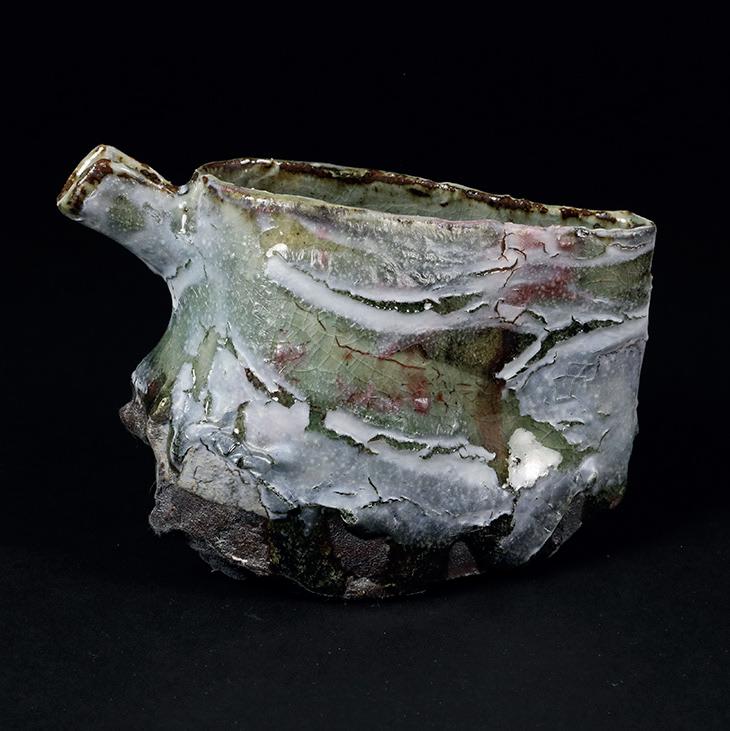

Her best works are made when she is in a particular state of mind – relaxed and calm, thoughtful but not too forcefully engaged

In an era where global awareness of environmental and social issues is at an all-time high, the way we travel has come under intense scrutiny. BY
TESS DE KLERKAs travellers, we have a responsibility to minimise our impact on the places we visit and to ensure that our adventures contribute positively to local communities and the environment. Ethical travel goes beyond just ticking off destinations on a bucket list; it’s about making mindful choices that respect the planet and its people. Here’s a guide to embracing ethical travel practices, and some destinations where you can experience them fi rsthand.
With the Spanish government announcing its commitment to protect Andalucía’s Doñana National Park wetlands from intensive farming, there’s never been a better time to visit. This UNESCO World Heritage Site is a haven for biodiversity, offering visitors the chance to experience five ecosystems in one day. Doñana’s habitats provide refuge to over 200 threatened bird species, and are also home to almost 100 lynx, making it a vital sanctuary for endangered wildlife.
Travellers looking to explore Doñana in an eco-conscious manner can opt for responsible tour operators like Travel Counsellors. They organise bespoke trips to the region, including train travel and guided tours with local biologists. By choosing sustainable transportation options and supporting local guides, visitors can minimise their environmental footprint while gaining insights into the park’s unique ecosystems.
www.donanareservas.com/en

For travellers seeking to actively participate in conservation efforts, organisations like Trees for Life offer rewarding opportunities to give back to the environment. Its rewilding weeks, which focus on restoring native forests and habitats, are in high demand and sell out quickly. However, new dates for autumn are now available, allowing more travellers to get involved in hands-on conservation work.
In addition to its traditional rewilding weeks, Trees for Life has introduced a new initiative this year: a week-long programme at RSPB Corrimony in Inverness-shire. This collaboration aims to restore the landscape after devastating wildfires last summer, highlighting the importance of communityled conservation efforts in protecting and preserving natural habitats.
https://treesforlife.org.uk
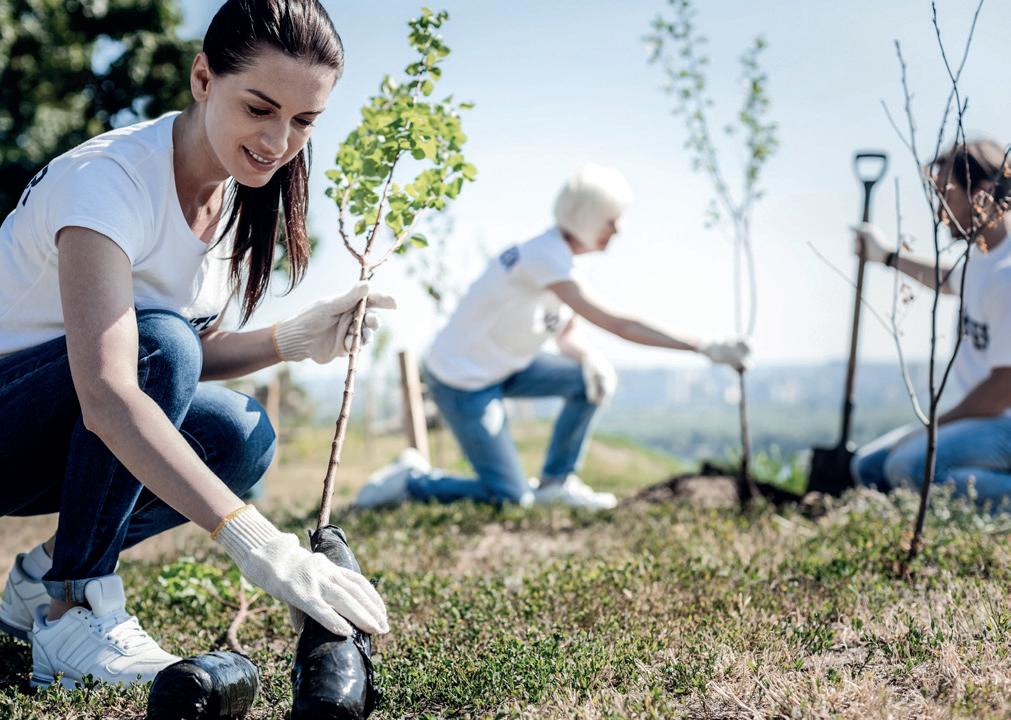

When it comes to ethical travel, where you stay matters just as much as where you go. Opting for eco-friendly accommodation that prioritise sustainability can make a significant difference. Look for hotels and resorts that have implemented initiatives like energy conservation, waste reduction, and water conservation measures. Eco-lodges, homestays, and guesthouses owned and operated by locals are also excellent options as they directly benefit the community.
Costa Rica is often a shining example of sustainable tourism done right. With a plethora of eco-lodges nestled within its lush rainforests and alongside pristine beaches, visitors can experience the country’s rich biodiversity without harming the environment.
When it comes to ethical travel, where you stay matters just as much as where you go
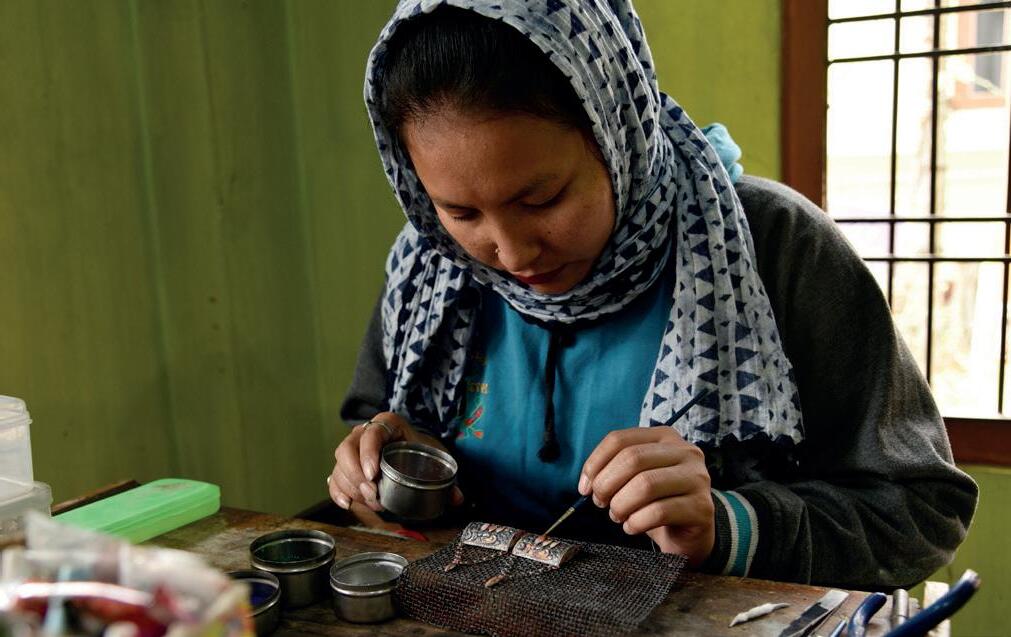
Support local crafts people
One of the most impactful ways to practice ethical travel is by supporting local communities and businesses. Choose to dine at locally-owned restaurants, shop at markets selling handmade goods, and book tours and experiences with local guides and operators. Your spending directly benefits the people who call your destination home, helping to preserve their way of life and empower local economies.
Morocco’s vibrant markets, known as souks, are a treasure trove of handmade crafts, spices, and textiles. By shopping at these markets and supporting local artisans, travellers can contribute to the preservation of traditional craftsmanship and support sustainable livelihoods. Additionally, staying in a riad, a traditional Moroccan guesthouse, allows visitors to directly support local businesses and experience the renowned hospitality of Moroccan culture.
When it comes to interacting with wildlife, it’s essential to prioritise their wellbeing above all else. Avoid activities that involve captive or exploited animals, such as elephant rides or visiting attractions with performing animals in any capacity. Never accept holding an animal for a photo opportunity, especially in exchange for money. Instead, seek out responsible wildlife experiences that prioritise conservation and ethical treatment of animals, such as visiting sanctuaries or observing animals in their natural habitat from a respectful distance.
The Galápagos Islands are havens for wildlife enthusiasts, offering unparalleled opportunities to observe unique species in their natural habitat. From swimming with sea lions to witnessing the famous giant tortoises, visitors can experience the wonders of the natural world responsibly. Strict regulations ensure that tourism in the Galápagos is sustainable, protecting the delicate ecosystems and minimising human impact on the islands’ biodiversity.
Ethical travel is not just a trend but a responsibility we all share as global citizens. By making mindful choices that prioritise sustainability, cultural respect, and community empowerment, we can ensure that our travels have a positive impact on the planet and its people.


The humble British pub has undergone somewhat of a transformation over the past decade, moving from a smelly, sticky, dingy hovel serving warm beer to bright and airy establishments with, sometimes, great food.
The Ginger Fox in Hassocks, West Sussex is one such pub – cheerful service, no sticky tables and a decent menu. Oh, and they have a great outside area in the summer full of tables, kids’ areas and shady trees. It’s also equal distance between Brighton and Crawley, West Sussex.
The menu is compact which is always a good sign of a chef who is not overstretching himself and trying to show off but one that knows that six starters and eight mains is enough, therefore giving him/herself the opportunity to focus and excel.
I used to hate pubs.
Old smelly geezers standing around with the sole aim of getting hammered before they have to go home…
I love the starter of salt beef, cornichon and cheddar croquettes, with American mustard and pickled red cabbage. Tasty, and just enough for a lunchtime starter and, importantly, always the same every time I have it, which is very important. I order it because I like it, not because I want to see what madness the chef can do with it today. Consistency is the key to any good restaurant.
I have to say that the Jerusalem artichoke and truffle mousse with chargrilled cauliflower, hazelnuts, gruyere crumb and vegetable jus is also superb.
For mains, I am often stymied as I don’t eat fish, and there seems to be an obsession with draining the oceans of critically endangered wildlife and serving dead fish everywhere I turn. But a decent steak can compensate for me, and the 35-day aged rump steak here is good, served with horseradish pomme puree, baby silver skin onions and



chestnut mushrooms. It is succulent and full of fl avour and, although my favourite cut would always be fi llet, I fi nd the rump here has more fl avour than the £45 fi llet, oddly.
An alternative would be the Guinea fowl breast with crushed swede, garlic puree, cavolo nero and wild mushroom jus.
I would like to see more meat on the menu - a cracking pork chop, rack of lamb, a beef stew etc would be most welcome for us non-fish eaters.
For me, pudding has to be the brioche French toast with banana caramel, candied pecans and vanilla - all day, every day and by the hundredweight if possible, please.
Sunday brings the inevitable roast of course with beef, belly of pork and lamb and the red wine gravy is wonderful.
I hate pubs - well, that should be I used to hate pubs. Old smelly geezers standing around with the sole aim of getting hammered before they have to go home, suffering miserable landlords, sticky floors, bad lighting and warm beer. Bars helped kill half of them off and now the so called gastropubs did for the rest – and good riddance in my opinion.
The new style pubs offer cleanliness, warmth, happy smiling staff and decent food. Take some good company and they are fab places to be, and the Ginger Fox is right there amongst them.
https://thegingerfox.com

The humble British pub has undergone somewhat of a transformation over the past decade… to bright and airy establishments with, sometimes, great food


If you want to frunk your life up – look no further.
By FIONA SHAFER, MD of MDHUB
My goodness, how the Audi e-tron GT has grown up! I reviewed an earlier model of this car in autumn 2021, in the middle of a petrol crisis, which saw record numbers of EVs flying off forecourts up and down the land over a 48-hour period.
The model I reviewed back then was head-turning and stunningly gorgeous but lacked a lot of substance. It also had a lot of irritating ‘prototype’ issues especially around technology and design, and caused a lot of distracting range anxiety as it gobbled up power while I sped about. I sadly gave it a disappointing 6.5 out of 10, but was persuaded by my passenger at the time that I was being a tad mean, and that we should settle on seven out of 10.
With the potential to reach a top speed of 152 mph, it is unassuming for everyone until you put your foot down, and then you are in a different universe.
After a very dreary start to 2024, it made me feel positively rejuvenated
Fast forward two and a half years, and Audi has produced a car that defi nitely has substance over style. It’s more of a stealth mobile, I would suggest; not quite so head turning but… by God, it is bloody fast – and that is part of the excitement when you drive it.
It has a 0-100mph acceleration boost of 4.1 seconds, and if you have the RS version, it gets there in a blistering three seconds. After a very dreary start to 2024, it made me feel positively rejuvenated, give or take a pothole or 20 on low profi le tyres, which has made the driving feel like a version of Grand Theft Auto, but in real time. But it comes with its curiosities. Do you know your ‘frunk’ from your ‘foot garage’? I didn’t until now – the ‘frunk’ is a derivative of ‘front and trunk’ and the ‘foot garage’ is the sculpted space for rear passengers to comfortably nestle their feet behind the front seats.
No doubt these terms will be soon tripping off dinner party guests’ tongues alongside RWR (real world range) or just how far an EV will go compared to the manufacturer’s specifications. For the record, collective reviews suggest

• Handy hint – if you have nerves of steel when it comes to range anxiety (and no imminent divorce proceedings in sight), wait until the charge is really low and it will charge from 5% - 80% in 23 minutes on a standard 270kW fast charge
• Beautifully quiet unless you put it in sport mode, and then you might just hear it coming
• Audi has simplified and upgraded its dashboard technology making life so much simpler
• Fabulous handling and incredible braking capacity


• The Audi rear door seals leaked badly after a heavy downpour and into the footwells
• I still put my elbows in the cup holders as there is no arm rest.
• Boot space is only 366 litres compared to the Tesla model 3, which wins at 744 litres
• The button to open the boot is in the most illogical place ever at the very bottom of the inside to the driver’s door panel –you would never ever spot it
• Visibility from the rear window is very poor and there is an annoying side panel on the driver side which you have to really crane your neck to look to your right
• The price as it’s £86,585
If you want an understated and very powerful electric car that is full of delicious surprises then go buy this. but I still think it is a lot of cash for some easy-to-rectify design faults
What is really rather fabulous about this car it is quite effortless to drive
to look for a range of 238-249 miles, compared to the 296 miles claimed by Audi as standard from this beauty.
I always find it really interesting as to how the car colour can actually enhance or reduce the impact of its design Think of the iconic black SAAB convertible back in the day. It just did not have the same iconic look in red. Or how about the Tesla Model 3 which looks so much better in white than blue? I have to say that the Ascari blue of this e-tron (rather than the black version) was really quite dull, and did not show off the fabulous design of this car.
What is really rather fabulous about this car is it is quite effortless to drive, blissfully comfortable and likely the best electric car that I have reviewed to date.
But – and this is a very big but – it also still comes with lots of the frustrating quirks of the earlier Audi e-tron (and Audis in general, I would say). I had really hoped those super clever Audi engineers and designers would have ironed these out by now. It’s an irritant – unless you only care about the power of the motor and money is no object.


An opportunity to experience a Yoga class in the sky in the Brighton i360 Pod. Find your mindfulness in the clouds and switch up your usual savasana for an hour-long yoga class, 450ft high in the sky above Brighton. Unwind your body and rest your mind, as you glide up peacefully, surrounded by views of the South Downs and beautiful Sussex coastline.
Brighton i360 Pod, Brighton April 20th
www.brightoni360.co.uk/tickets/yoga-in-the-sky
Join us for the day or stay for the weekend at our brand new campervan festival in Ardingly. A phenomenal line-up of live music from 11am everyday awaits including a DJ set from Trunk of Funk legend Craig Charles. Meanwhile the Artisan food & drink hall, Street Food Area and Gin Festival will celebrate the best in local, national and international produce.
South of England Showground, Ardingly May 3rd-5th
www.outandaboutlive.co.uk/shows/ information/campervan-campout-2024a-family-friendly-campervan-festival


A two-day retreat based around a full and varied program of events including yoga flows, yoga Nidra and sound-bath, breath therapy, hypnotherapy, face yoga, individual treatments (massage, facials), reflexology. Fully catered. Two nights luxury accommodation. Hot tub, ice bath, fire pit. Great walks to discover.
Walnut Studio, Horsham
April 26th
https://sussexluxuryaccommodation.co.uk

Explore The Garth Pleasure Grounds designed by renowned Arts & Crafts architect Walter H Godfrey, which surround the magnificent Garth workhouse, built in 1729. Children will love exploring the grounds, story trails, TORTUGA Tavern. Discover the magical carpets of bluebells in spring, the bloom of roses, azelias in summer and orange carpets of crocosmia in early autumn.
The Garth Pleasure Grounds, Lingfield May 5th-19th www.thegarth.info



ONE TO WATCH
Carnesky’s Showwomxn
Sideshow Spectacular
May 25th-26th
Elder Place Corridor Brighton
Established in 1967, Brighton Festival is the largest and most established annual curated multi-arts festival in England. Taking place over three weeks in May, the Festival is a celebration of music, theatre, dance, art, film, literature, debate, outdoor and community events in venues and locations across Brighton, Hove and East Sussex. Since 2009, Brighton Festival has attracted inspiring and internationally significant Guest Directors who bring cohesion to the artistic programme.
The inaugural Guest Director was Anish Kapoor (2009) and has subsequently included prominent cultural figures such as Brian Eno (2010), Laurie Anderson (2016), Kae Tempest (2017), David Shrigley (2018), Rokia Traoré (2019) Lemn Sissay OBE (2020/21) and Marwa Al-Sabouni & Tristan Sharps (2022). With critically acclaimed screenwriter Frank CottrellBoyce as Guest Director for 2024, the Festival promises a three week celebration of “Hope, Wonder, Magic and Fun.”
Across the city
May 4th-26th
https://brightonfestival.org

